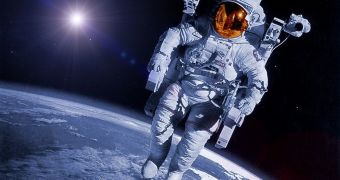This year's International Educational Week held in Washington D.C. hosted a novel space experience, both challenging and inspiring for the participant science students.
Thursday, over 9,500 young people of the Student Spaceflight Experiment Program participated in a live conversation with Sunita Williams, Commander of International Space Station Expedition 33, and Kevin Ford, Flight Engineer.
About 130 of the participants were personally present at the Smithsonian National Air and Space Museum of Washington, where the event took place, while the rest of them were virtually present.
Besides the great emotional load that comes with a students-astronauts encounter of this kind, the conversation had a valuably instructive character. Students used the opportunity to find out extraordinary facts about the life and work in space, being allowed to ask Williams and Ford questions they would not have answered otherwise.
The live Earth-to-Space prolific conversation was followed by a speech delivered by Leland Melvin, NASA Associate Administrator for Education, and another held by Jeff Goldstein, director of NCESSE and sponsor of Student Spaceflight Experiment Program.
They both constructed their speeches as a motivational tool for the young science and engineering students.
"You are the scientists, engineers and astronauts of tomorrow. America's future of scientific research and space exploration is in your hands, and there's no better way to prepare yourselves for those grand adventures than to start pursuing a STEM career now," Melvin said.
The event is part of a series of similar activities organized with NASA's support, all of them comprised in its Teaching from Space educational program.
The International Educational Week is an event organized annually by American officials in an attempt to ceremonially emphasize the overall advantages of an efficiently organized educational system.
All of these actions are irrefutable proof of the U.S. officials' great interest in the future development of space sciences, which comes from the consciousness of our belonging to an yet unconquered Universe.

 14 DAY TRIAL //
14 DAY TRIAL //